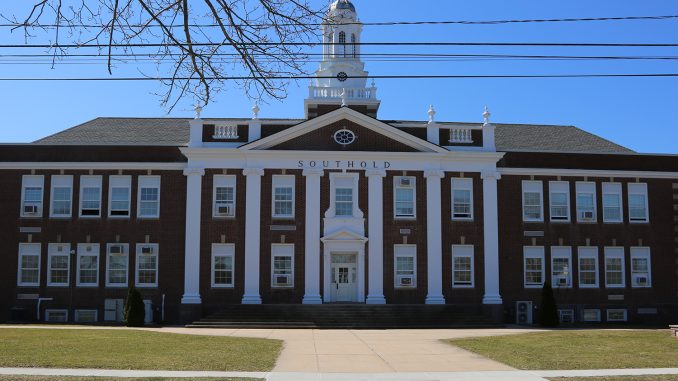
In order to graduate from high school, students must master the three R’s: reading, ’riting, ’rithmetic. This year, seniors in Southold can add a fourth ‘R’ to the acronym: real-world readiness.
That’s the idea behind a new senior seminar course that will help students explore both postsecondary plans and financial literacy, a current hot topic among education leaders who are troubled by the lack of knowledge students entering adulthood have about basic concepts like credit scores, student loans, investing or even retirement planning.
“The Board of Education has wanted a course like this, where it is preparing students not only for college and careers, but also life and adulthood: writing checks, financial literacy,” high school principal Terence Rusch said in an interview. “That’s our job, to prepare students.”
Goals of the new course outlined in a course catalog include developing aspects of financial literacy including banking, budgeting, basic investing, insurance, paying for college or trade schools, taxes and credit.
In addition, the course will also help students develop a personal plan for after high school and review skills for job searching, applications and interviewing and other important aspects of young adulthood.
In years past, the district had iterations of the course offered by guidance counselors or a business teacher when possible. Lessons have also been embedded into economics classes, which seniors are mandated by New York State to take before graduation.
Mr. Rusch said the district has made it a priority to broaden the scope into a semester-long curriculum that’s useful to all students, not just those who are college-bound.
The course currently has 22 students enrolled and will be taught by Nicole Helf, the district’s career and transition coordinator who is passionate about college and career planning not just for high school students but at the elementary level too.
“Last year, I started with fifth and sixth grade, just kind of getting their brain flowing around what they like, what they don’t like, things that they’re good at, things that they might need support with and then a career exploration piece of different jobs, that they’re familiar with skills that are needed for those jobs,” Ms. Helf explained, adding that her lesson concluded with students picking careers they are interested in to share about with the class, from biochemical engineer to literary agent.
Both Ms. Helf and Mr. Rusch said a course like this would have helped them both as young adults. “I have my own personal experiences of ‘Oh, gee, that would have been nice to learn’ or to have had that support, knowledge or topics of conversation in class when I was in high school,” Ms. Helf said.
“I took differential calculus my senior year but had no idea what loans and interest really meant,” Mr. Rusch joked. “I look at my life now and I’m not using differential calculus too often.”
Ms. Helf also hopes to incorporate guest speakers into the course to help inspire and motivate students, particularly alumni. “Kids who have sat in these same desks and have gone off to move mountains and change the world,” she said. “I love Southold, we’re in a little bubble. But there’s a lot outside the bubble. I’m very big on kids, having that exposure and even just learning about new jobs because there’s so much out there.”
Financial literacy curricula are gaining traction nationwide especially amid the current economic upheaval and as income inequality widens.
According to the 2021 Experian Consumer Credit Review, the average debt balance increased nearly 4% to $96,371 in 2021, largely driven by mortgages and auto loans.
The report also found that the average credit score hit a record high of 714 in 2021 and noted that the current average student loan balance is approximately $39,487.
Advocates for financial literacy education say it can help empower students to make more informed financial decisions, like the importance of a good credit score or pursuing lower-interest federal student loans over private options.
“What we’re doing here is not required from the state,” Mr. Rusch said. “We’re doing something that we know serves our students best interests.”

